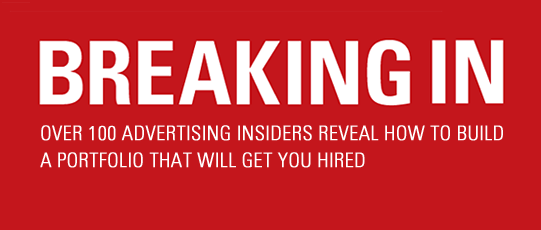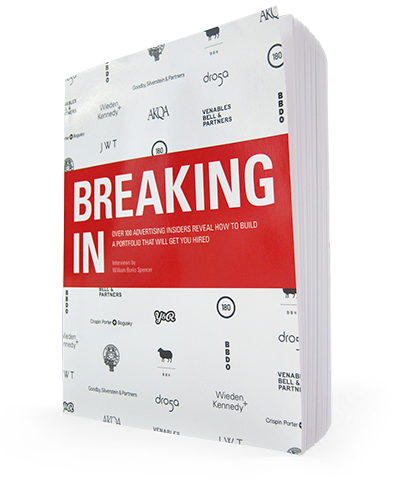In case you missed it, check out some great work from Toygar Bazarkaya.
WS: What do you look for in a student portfolio? And what impresses you?
TB: What impresses me is when you take on tough problems and solve them. If a student came and showed me great work on Gillette, that would impress me much more than great work on Nike. Great work on a tattoo shop is not as impressive as a washing detergent. They are harder problems to solve. Often times you get hung up on the brand that you love and you get yourself in trouble because you’re not as good as the actual work that is out there. So you do yourself a favor if you take things on that are wrong in advertising, rather than trying to improve on things that are already good.
WS: How important is finish in a student book? Could sketches be enough?
TB: It depends if you are an art director or copywriter. And for art directors it doesn’t change if you’re a student or you’ve been in the business for 20 years. Attention to detail, good art direction, typography, layout is just as important for a student as it is if you’ve been in the business for a long time. I have a strong point of view there. I don’t like art directors who are not art directors. They have great ideas but they shouldn’t call themselves art directors. It’s a craft. And that’s the tough thing: you have to be as good at creating ideas as you have to be in your craft. As hard as it is for copywriters to write an awesome long-copy ad, art directors have to be good at their craft. Not everyone has that skill.
WS: So, for writers’ books, polish is less important?
TB: Yes.
WS: Sketches could be enough?
TB: Absolutely.
WS: And do you look at paper books anymore, or is it all websites?
TB: You don’t really have a choice anymore. I’m looking at a lot of online books. It’s actually pretty convenient. The one thing is: I still like being able to touch and hold the physical book but you don’t get that much and it’s fine.
[ … ]
WS: What do you think about putting work in a book that is not advertising at all?
TB: I love it. There was someone I hired because I saw some ideas that I thought could change the whole business. They were groundbreaking ideas that didn’t have anything to do with ads as we know them. And, oftentimes, you can see their thinking better. With print and TV, a lot of the time, we’re talking about executions, and they are great ideas but within that format. And when you go beyond that, you’re talking about bigger ideas.
[ … ]
WS: Do you have any other advice for someone who is trying to break into the business?
TB: One thing I notice: sometimes people put something in their book just to prove that they can do it. I see books with a mediocre website. And the person puts it in to say, “I’ve got online work too.” But it’s not good and it hurts them.
With the book, not only are the pieces themselves important, but when you take a step back, it says a lot about their creative judgment in evaluating what is a good and a bad idea. So I’m going through a lot of books right now, and it makes me nervous to see 10 good pieces and five mediocre ones. I know we’ve all done it [mediocre work]—not everything you do is going to be brilliant. But then to put it in your book says something about your judgment. Never make the mistake of putting something in your book just to prove that you can do it. It doesn’t prove anything. Other than that, make it easy to go through. Sometimes it can be really difficult to go through books—especially the online books. Don’t try to be clever; make it easy to go through. Don’t waste our time.


Comments are closed.